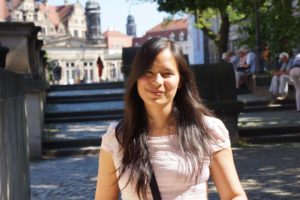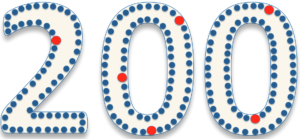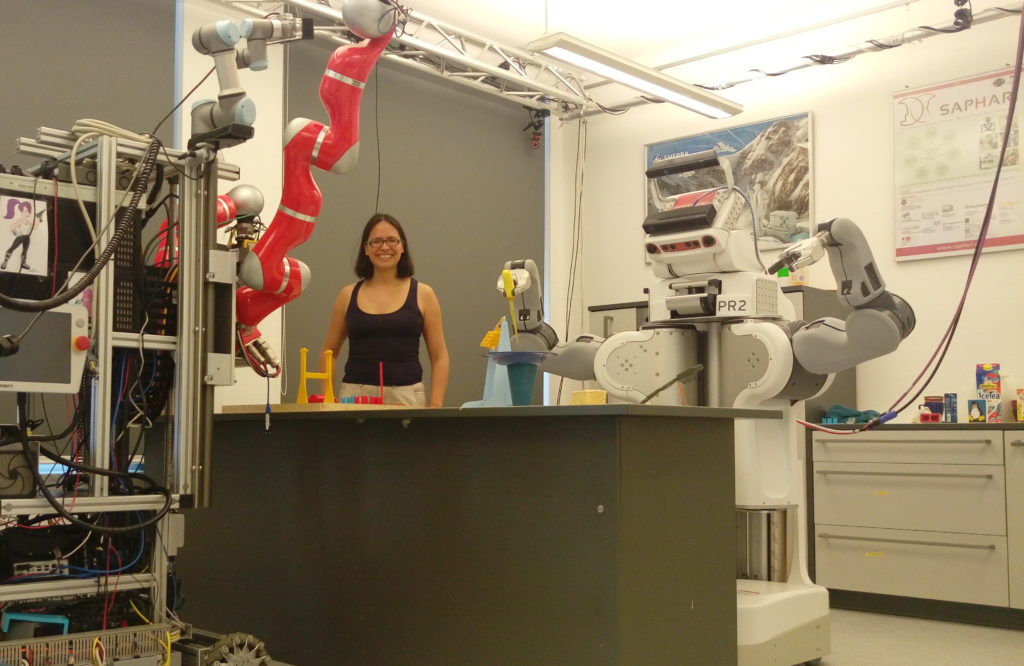6 out of 200 – Lisset Salinas Pinacho teaches robots how to cook


Meet Lisset Salinas Pinacho in this Q&A series with 6 out of 200 computer scientists and mathematicians participating in the 5th Heidelberg Laureate Forum, September 24-29, 2017. 26 Laureates (Abel Prize, Fields Medal, Nevanlinna Prize, Turing Award and ACM Prize in Computing) will attend the forum together with them. For a full week, Heidelberg in Germany will be the hot spot of mathematics and computer science.
What is your name and nationality? My name is Lisset Yazmin Salinas Pinacho and I am Mexican
Where did you study and where are you currently based? I studied my master at the University of Birmingham, UK and am currently a PhD candidate at the University of Bremen (Universität Bremen), Germany
What is your current position? PhD candidate
What is the focus of your research? What is your research project? I look at commonsense knowledge for learning from experience. A robotic platform has to be able to handle manipulation tasks in a natural way in a home scenario, in order to be able to serve a human. For this reason, previous knowledge is needed and commonsense to perform a task in a robust way. For example, if the human gives a simple command as “prepare breakfast”, the system should be able to serve food that is considered breakfast, obtain the food products, the kitchenware (if needed) and, plates, cups and glasses as needed. My main research is to find sources of commonsense knowledge and relations to represent this in a manner that the machine is able to use.
Why did you become a mathematician/ computer scientist? I wanted to build “intelligent” machines.
What do you see yourself doing in 10 years? Building new robots capable of helping people in their daily life.
What are you doing besides research? I do sports like swimming and martial arts. I also dance different kinds of rhythms, my specialty are Latin and tango.
Why did you apply for the HLF? I am interested in sharing knowledge and ideas with people. I truly believe that it gives a great opportunity of growing in many ways.
What do you expect from this meeting? I expect to get new ideas about my topic and other areas. I am a curious person, who likes to know more about many things.
Which laureates present at the forum would you really like to talk to? Manuel Blum, Frederick Brooks, Jeffrey Dean, Sir C. Antony R. Hoare, John E. Hopcroft, Barbara Liskov, Leslie G. Valiant.
You work on autonomous service robots. Which area of daily life do you think will be influenced most by those robots over the next ten years? Elderly care. One of the big objectives of the area is to build systems which are able to take care of people, not just by cleaning and cooking, but giving company. As the population in many countries is getting older, and is important to give a quality of life to these people, systems should be able to be totally autonomous.



Professional Cooking is easier than Cooking for the Elderly. Because Professional Cooking can be organised like a job in a factory where input and output streams are clearly defined and the environment is controllled. Any serious houshold chores is believed to be far out of reach of current robotic technology. Because this is an unctrolled environment and one will expect unexpected events and circumstances which do not fit into any given planning.
Lisset Salinas Pinacho has therefore chosen a very difficult task.